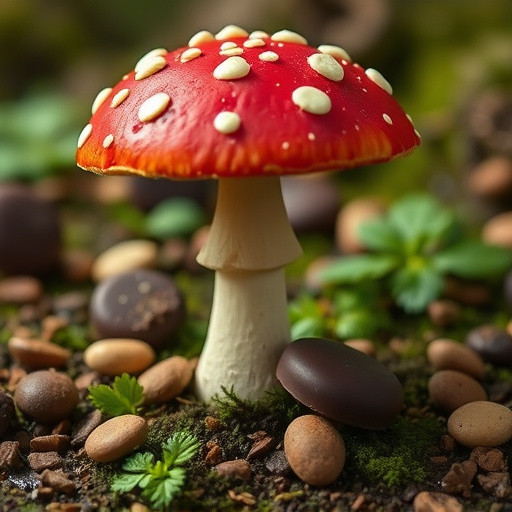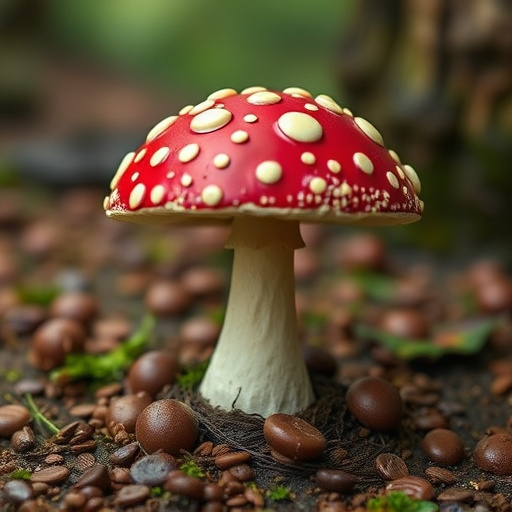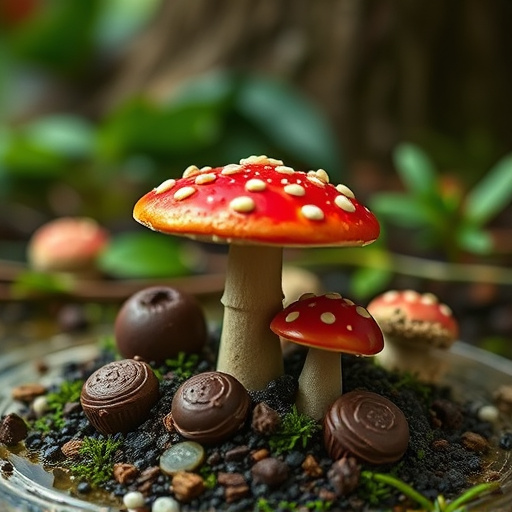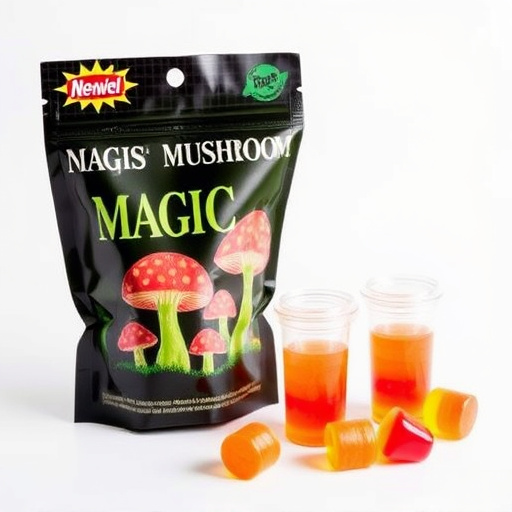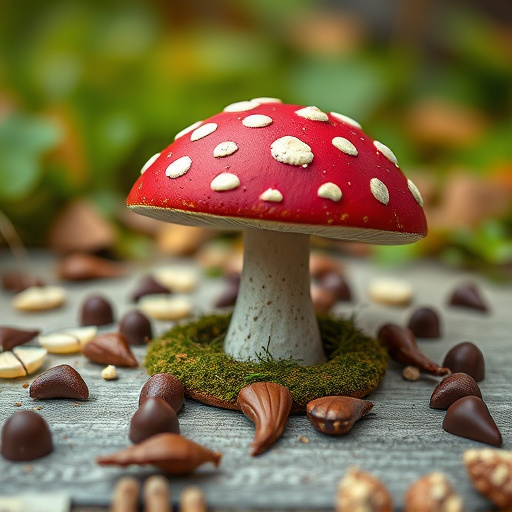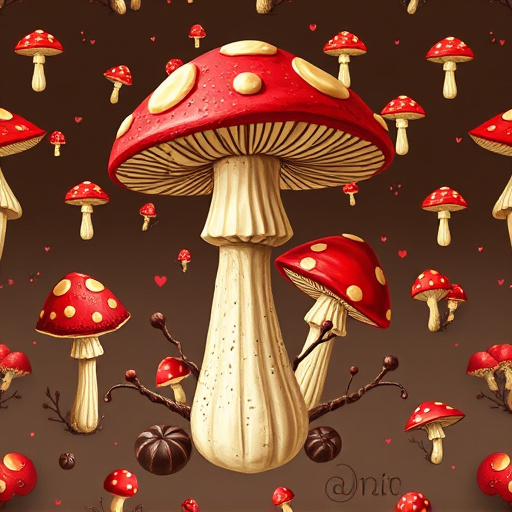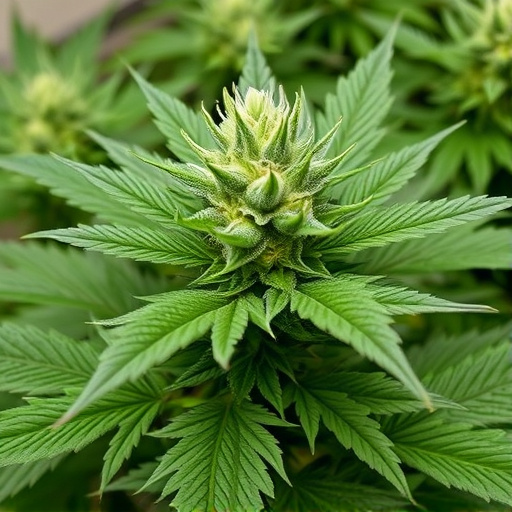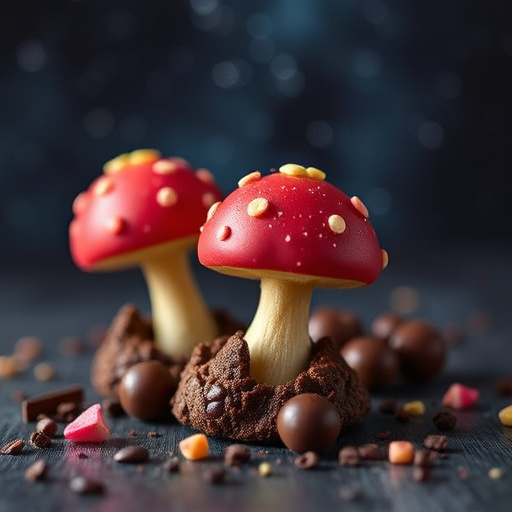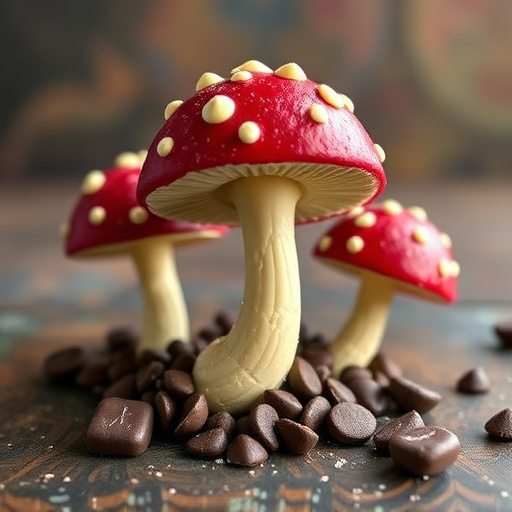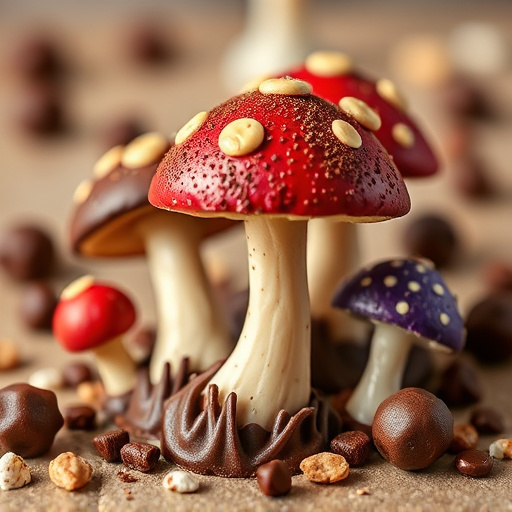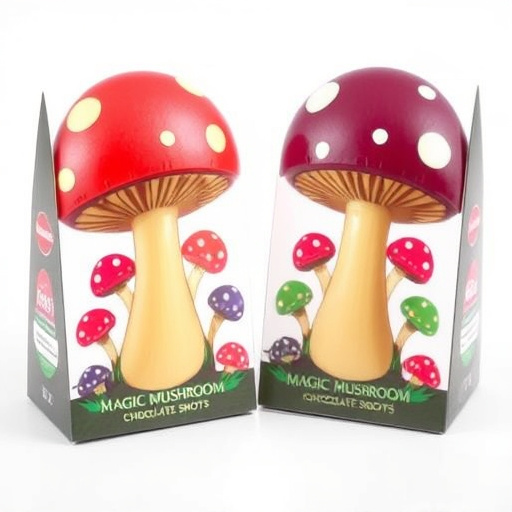"The Science Behind Magic Mushroom Chocolates" investigates how these novel treats combine culinary allure with potential therapeutic effects. Infusing specific mushroom extracts, like Chaga's ergothioneine and Lion's Mane's hericenone, offers antioxidant and cognitive-enhancing properties. The active compounds psilocybin and psilocin, known for their psychedelic effects, interact with brain serotonin receptors to boost creativity, open-mindedness, and focus. This modern approach leverages ancient fungi knowledge, presenting a controlled, delicious way to explore potential mental clarity benefits without intense psychedelic experiences.
Discover the surprising world of Magic Mushroom Chocolates and their potential role in enhancing focus. This emerging trend combines the ancient benefits of psilocybin mushrooms with modern confectionery, offering a novel approach to cognitive enhancement. In this article, we explore the science behind Magic Mushroom Chocolates, delving into their active compounds, the effects on concentration, and their promising applications for improving mental clarity.
- What are Magic Mushroom Chocolates?
- The Active Compounds and Their Effects on Focus
- Benefits and Potential Applications for Cognitive Enhancement
What are Magic Mushroom Chocolates?

Magic mushroom chocolates are a modern twist on traditional edibles, combining the benefits often associated with psychedelic mushrooms, like Lion’s Mane and Chaga, with delicious chocolate treats. These chocolates are infused with specific mushroom extracts or powders, offering a range of potential cognitive and health benefits.
The science behind magic mushroom chocolates is rooted in the active compounds present in these fungi. Studies suggest that compounds like ergothioneine (found in Chaga mushrooms) possess potent antioxidant properties, while others like hericenone and inositol (common in Lion’s Mane) may enhance focus, memory, and nerve growth. By encapsulating these compounds in a tasty chocolate format, consumers can potentially reap these benefits without the intense psychedelic effects typically associated with traditional mushroom consumption.
The Active Compounds and Their Effects on Focus
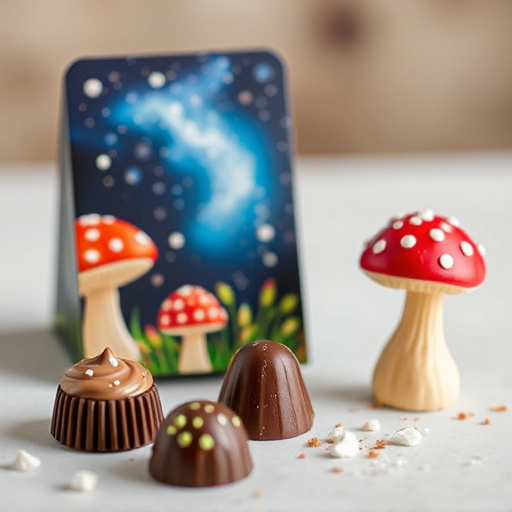
The active compounds in magic mushroom chocolates, primarily psilocybin and psilocin, are responsible for their unique effects on focus and cognitive function. Psilocybin, a naturally occurring psychedelic compound, is known to enhance creativity and open-mindedness when consumed. It does this by interacting with serotonin receptors in the brain, particularly those involved in mood regulation and perception. This interaction can lead to altered states of consciousness and heightened sensory awareness, which may contribute to improved focus by promoting a state of mental clarity and reduced distraction.
Psilocin, the metabolite of psilocybin, is believed to play a crucial role in the therapeutic effects of magic mushrooms. It acts as a partial agonist at serotonin 2A receptors, influencing neural pathways associated with attention and memory. Research suggests that psilocin can improve cognitive flexibility and enhance the ability to switch between tasks, thereby improving focus and concentration over time. The science behind magic mushroom chocolates reveals a complex interplay of these compounds, offering potential benefits for focus and mental clarity in controlled, therapeutic settings.
Benefits and Potential Applications for Cognitive Enhancement

The science behind magic mushroom chocolates reveals a fascinating intersection between traditional medicine and modern culinary innovation. Magic mushrooms, or psychotropics like Psilocybin, have been used for centuries in various cultural practices for their potential therapeutic benefits. Recent research has delved into their cognitive effects, uncovering promising applications for enhancing focus, creativity, and mental clarity.
Studies suggest that psilocybin can interact with the brain’s serotonin receptors, influencing neural pathways associated with perception, mood, and cognitive functions. This interaction may lead to heightened awareness and improved concentration. Magic mushroom chocolates, when consumed in controlled doses, offer a subtle yet potent way to explore these effects. They could potentially be used as a natural nootropic, aiding individuals seeking enhanced focus for tasks requiring deep concentration or creative thinking.
The science behind Magic Mushroom Chocolates suggests that compounds like psilocybin and psilocin, found in these treats, could offer a natural approach to cognitive enhancement. While more research is needed, initial studies indicate potential benefits for focus and mental clarity. As the popularity of microdosing gains traction, Magic Mushroom Chocolates may emerge as a novel way to navigate the quest for improved concentration and mental performance, providing a delicious alternative to traditional nootropics.
